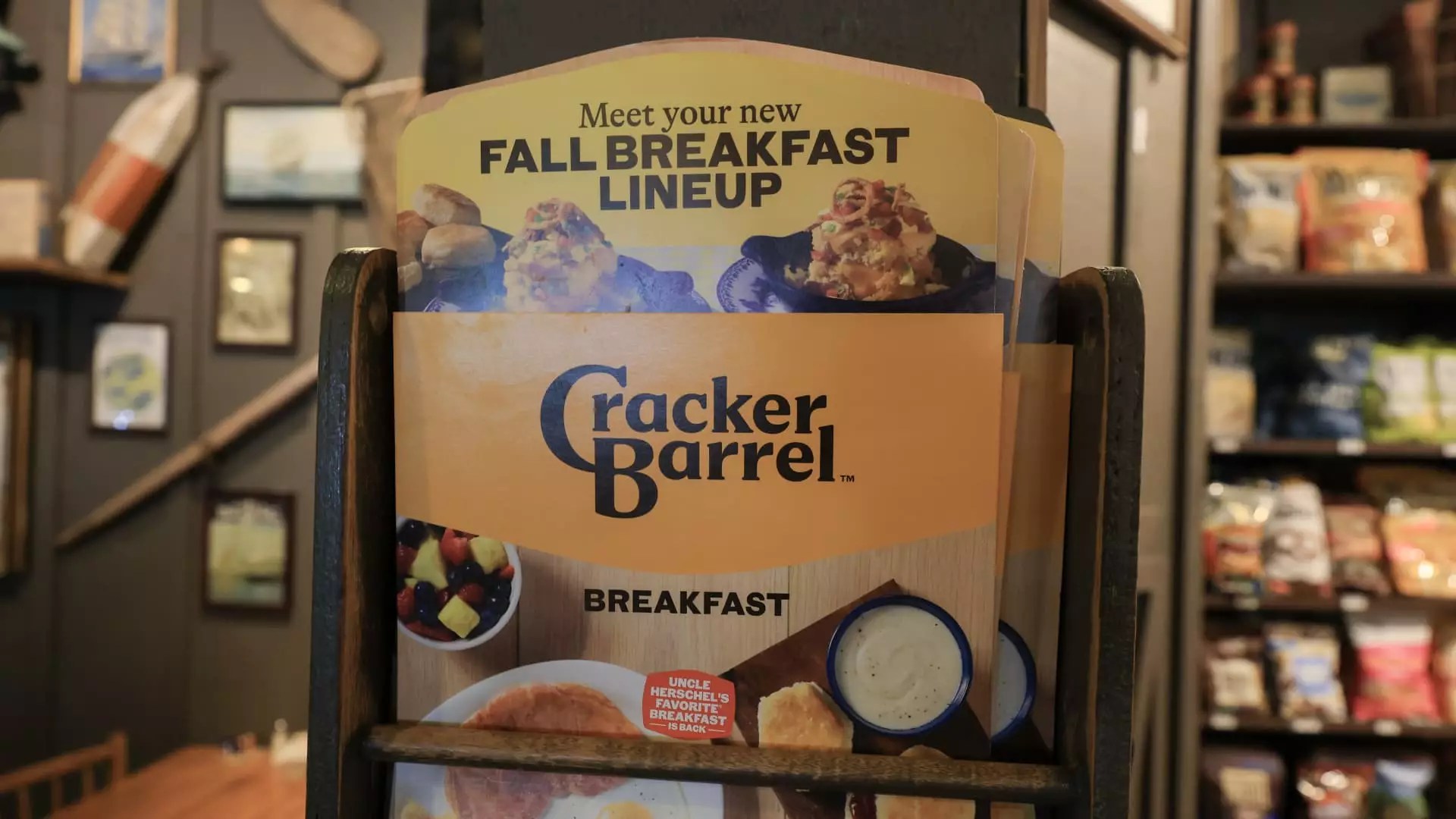Cracker Barrel’s recent attempt to reinvent its brand has inadvertently ignited a firestorm of criticism, revealing more than just a logo redesign — it exposes the fragile balance between tradition and modern corporate progressivism. The company’s announcement of a new visual identity, stripped of its iconic imagery and the phrase “Old Country Store,” was intended to symbolize a fresh, revitalized approach. Yet, what was marketed as a strategic transformation has instead become a battleground for cultural values, with many consumers perceiving it as an abandonment of the brand’s core identity. The removal of the man leaning against a barrel, a symbol of rustic American hospitality and heritage, signifies a broader trend of corporate de-ethnicization, which critics argue dilutes the authenticity that historically defined Cracker Barrel.
The decision to drop “Old Country Store” from the logo further dilutes the brand’s identity, signaling a move away from its roots to appear more inclusive and modern. While the company claims these changes are part of a “strategic transformation” aimed at reinvigorating the brand through updates to aesthetics and store layouts, resistance from loyal customers suggests a disconnect. Rather than embracing the authentic charm that drew generations, the company’s rebranding is perceived as kowtowing to progressive pressures, risking alienation of its traditional customer base.
Social Media as the New Culture Wars Arena
The swift and intense backlash on social media platforms illustrates how modern corporate branding is now deeply intertwined with cultural identity politics. When Donald Trump Jr. publicly suggested that the logo change was motivated by a desire to erase “American tradition” in favor of a more “diverse” and “inclusive” identity, it highlighted how corporate decisions are scrutinized through ideological lenses. This critique, echoed by conservative activists like Robby Starbuck, frames the rebranding as an example of “wokeness” overtaking American values, fueling fears that commercial entities are subordinating heritage to political correctness.
Such accusations, whether justified or not, reveal a broader trend: businesses are increasingly targeted when perceived as deviating from traditional cultural signals. Cracker Barrel, with its modest market cap and position as a symbol of Americana, has become a lightning rod for these ideological debates. The company’s attempt at modernization has been interpreted by many as capitulating to social justice initiatives, which in the eyes of its core demographic, undermines the character that built the brand.
Interior Redesign and the Erosion of Authenticity
Beyond the logo, the interior redesign of Cracker Barrel stores echoes the same contentious themes. Customers’ complaints about a shift towards a “sterile” and “modern” aesthetic—away from the warm, rustic charm—underscore a tension between progress and preservation. While the company claims that these changes make stores “lighter, brighter, more welcoming,” critics see them as a betrayal of the brand’s Appalachian, country-hospitality roots.
This strategic repositioning reflects a broader conservative skepticism towards rapidly evolving corporate landscapes. For many, the modern interior design symbolizes a broader cultural shift—one that favors globalized, sanitized aesthetics over distinct regional identity and tradition. Advanced remodels supposedly improve customer experience, yet they risk alienating a segment of consumers who value cultural continuity over corporate aesthetics.
Market and Cultural Dynamics: A Risky Balancing Act
Cracker Barrel’s relatively modest market capitalization compared to industry giants underscores the vulnerability of traditional brands in a shifting cultural landscape. When a social media post can trigger a 10% stock drop overnight, it highlights how closely consumer sentiments are now intertwined with political and cultural currents. Companies operating within this charged environment must navigate a narrow path: modernize to stay relevant without losing sight of their heritage.
Historically, brands like Cracker Barrel thrived on their American authenticity—values that resonate deeply within conservative circles. As these same consumers perceive corporate efforts towards diversity and inclusivity as a cultural threat, their response is often reflected in market actions: boycotts, social media outrage, and even stock volatility.
Cracker Barrel’s tumultuous experience serves as a microcosm of a larger societal battle—whether businesses should prioritize tradition or adaptation—highlighting the perils of overcorrection. In an era where cultural identity is fiercely protected, corporate decisions are no longer made solely on economic grounds but are heavily scrutinized through ideological prisms. The challenge for companies on the center-right spectrum is balancing respect for cultural heritage with the necessity of remaining relevant in a multicultural, changing society.

